We’re experiencing a new golden age of science fiction, from the big screen to the bookshelf. A whole slew of groundbreaking books has come out in recent years, with some of them rising to join the ranks of the classics. To help you sort through them all, we’ve put together a guide to the very best of sci-fi, both old and new. Our picks for the 50 best science fiction books ever are below. Did we miss one of your favorites? Let us know in the comments!
RELATED: 50 of the Best Fantasy Books Ever
1932

Brave New World
The genius of Brave New World’s dystopia lies in how much it sounds (on paper) like the perfect society: everyone is happy (due to the drug soma), old age is no longer a problem, sexual freedom is embraced, and ills like poverty and disease have mostly been eradicated. It takes John, a young man who grew up in exile, to see how terribly empty this life is. But rather than being welcome as a savior, he becomes an oddity.
RELATED: 13 Classic Science Fiction Books Everyone Should Read
1936
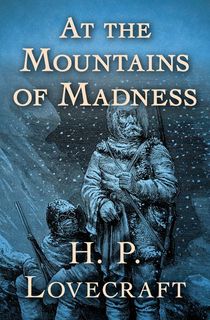
At the Mountains of Madness
Though usually classified as a horror tale, Mountains is really a scientific expedition into the unknown gone terribly wrong. Lovecraft’s attention to archaeology, human history, and the practicalities of exploring the inhospitable Antarctic make it a tale of survival and science, but all of that is just the prelude for a chain of revelations that are horrifying not because they involve monstrous creatures, but because their terrifying implications for humanity are almost too much to bear.
1949

1984
It’s hard to find anyone who hasn’t heard of Orwell’s magnum opus, but to truly understand the depth, subtlety, and prescience of the novel, multiple readings are recommended. 1984 isn’t just about surveillance, misinformation, or even government control—it’s about a society that operates on a reality as malleable as our own minds. Chilling, incisive, and thought-provoking, 1984 always seems to loom large on the horizon, threatening to slip into reality.
RELATED: 10 Shocking Dystopian Fiction Books
1950
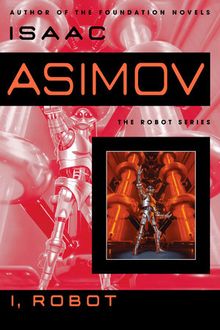
I, Robot
In many ways, we’re still catching up to the stories in I, Robot, which seem poised to become as real and troubling as anything in HBO’s Westworld. Spanning the decades-long rise of U.S. Robotics, the stories chronicle the accelerating advancement of thinking machines, bookended by interviews with Susan Calvin, the now-aged robopsychologist who watched them transform from mute, bipedal automatons into nation-guiding supercomputers. At the heart of it all is the famous Three Laws of Robotics…and the question of what makes a robot.
RELATED: How Isaac Asimov's I, Robot Prepares Us for a Future Controlled by AI
1950
.jpg?w=640)
The Martian Chronicles
Though Bradbury’s legendary Martian Chronicles lacks the scientific chops of other sci-fi classics, it’s definitely got variety, imagination, and heart. The book is a collection of short stories and vignettes united into a sprawling narrative that chronicles the human colonization of Mars, which is already populated by the human-like, telepathic Martians. Some stories are humorous, some are melancholy, but taken as a whole, the book creates a surprisingly poignant portrait of humanity.
1951

Foundation
Instead of recounting a single lifetime or even a generation, Foundation chronicles the tipping points of a galactic civilization. The main character, psychohistorian Hari Seldon, has modeled the course of humanity and discovered that, through subtle nudges, a select group of people can save our race from an inevitably approaching millennia-long dark age. So begins one of the most sprawling, thoughtful epics in sci-fi, which has inspired everyone from Elon Musk to Nobel-winner Paul Kruggman.
RELATED: Here's What You Need to Know About Isaac Asimov's Foundation
1959

Starship Troopers
The poster child for military sci-fi, Starship Troopers is relentlessly realistic, down to its protagonist Johnny Rico’s stomach dropping as his orbital pod plummets to a new planet, where he fights against the ravenous giant aliens known as the Bugs. A major part of the book’s legacy is powered armor, which turns the soldier of the future into a walking tank and becomes the focus for Troopers’ exciting, large-scale battles against the aliens.
RELATED: 12 Sci-Fi and Fantasy Movie Adaptations That Are Worth Watching
1959

Canticle for Leibowitz
Canticle takes place after a nuclear war has devastated the Earth and a small monastic order has risen to preserve books, where are being destroyed by Luddite-like mobs who blame science and learning for allowing humanity to destroy itself. Post-apocalyptic landscapes and century-spanning narratives are nothing new to sci-fi, but Canticle marries both elements to create one of the most poignant, enduring tales of humanity’s rise and fall.
1961

Stranger in a Strange Land
Stranger in a Strange Land is about a young man named Smith, raised on Mars by Martians after surviving a failed expedition, and his return to the home planet he never knew. Smith instantly becomes a celebrity, but as he reveals his radical new understanding of life (and Martian psychic powers), he starts butting heads with the massive, influential new religions that have begun guiding human society. Eclectic, imaginative, and still powerful decades later.
1961

Catseye
In an age when the rights and sentience of robots dominates the zeitgeist, it’s easy to forget that the question of animal rights and intelligence has been explored for years in sci-fi stories like Catseye. The book focuses on Troy, one of the few people who can communicate with animals telepathically, and a cast of creatures being modified and sold as pets (and living weapons). As the story goes on, Troy begins fighting with his animal partners against a system that sees them as tools, rather than lives.
1961

Solaris
Solaris takes place in orbit around the titular planet, which is covered by an ocean discovered to be a single, massive alien intelligence. Scientists are baffled by the ocean’s true nature, but the protagonist, psychologist Kris Kelvin, arrives to try to gain some insight. After a radical experiment, however, the crew begin to see visions pulled from their deepest, darkest feelings, suggesting that though humans may not understand Solaris, it might understand us.
1962

The Man in the High Castle
Philip K. Dick’s famous alternate history novel doesn’t just explore what would have happened if the Axis powers had won World War II—it explores reality, the nature of fiction, and the divide between cultures. The society and colonial life of the Imperial Japanese territories in America are described in amazing depth, but the book’s real goal is using its premise as entrée to ask more troubling questions: what is fake, what is real, and how can we tell?
RELATED: 10 Must-Read Philip K. Dick Books
1962
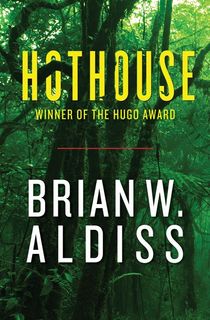
Hothouse
Hothouse is built on a series of ideas so bizarre and imaginative that you can’t help but get hooked: what if the Earth’s climate became so warm that plants wiped out nearly all other life? What if these plants began to gain limited intelligence, even limbs and eyes? What if spiders connected the Earth to the Moon with giant webs? What it lacks in scientific credibility, Hothouse makes up for in sheer weirdness.
RELATED: 8 Brian Aldiss Sci-Fi Books That Will Blow Your Mind
1963
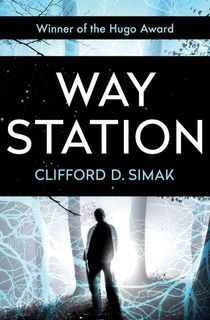
Way Station
Way Station follows Enoch Wallace, a Civil War soldier who is chosen to become the station-master for a futuristic teleportation facility run by aliens. Beneath this initially strange premise, however, is a story of an ageless man learning to make friends with myriad strangers from civilizations among the stars. Refreshingly, Way Station’s optimism and empathy stands in stark contrast to other alien contact stories that focus on the paranoia and culture shock of meeting beings from other worlds.
1965

Dune
In the constellation of sci-fi classics, Dune’s star shines among the very brightest. The book offers almost unparalleled worldbuilding (down to planetary ecology), but most impressive of all is its ability to boil down a galaxy-spanning war, millennia-long prophecy, and planet-wide rebellion into the story of Paul Atreides, a young man pulled by the currents of history into becoming a new Messiah. Filled with mysticism, intrigue, and truly epic stakes, Dune is a saga in itself.
1966
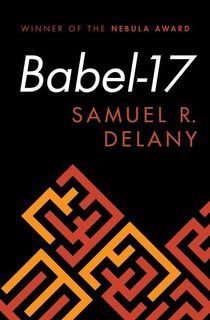
Babel-17
Like a lot of classic sci-fi from the 1960s, Babel-17 is a story based on a big idea—specifically, the Sapir-Whorf hypothesis, the theory that one’s language has the power to shape one’s perceptions and experiences. The story focuses on the titular Babel-17, a language developed by an alien race as a subtle weapon to warp the perceptions of their human enemies and turn them into saboteurs and traitors. A stimulating dive into language, reality, and human will.
1968

2001: A Space Odyssey
Although you can read 2001 simply to understand the more cryptic elements of Stanley Kubrick’s film masterpiece, the book stands on its own as a genuinely engrossing and mind-expanding saga, exploring artificial intelligence and human evolution. The book is filled with meticulous scientific detail, enough to please any fan of truly well-researched hard sci-fi. As for the plot, it begins with the mysterious arrival of a black monolith on Earth…
1968

Do Androids Dream of Electric Sheep?
Though now it owes most of its notoriety to its film adaptation, Blade Runner, Androids is arguably the most compelling story to come from the mind of Philip K. Dick. It follows Rick Deckard, a detective who must hunt down six escaped androids that appear totally human…except for a chilling lack of empathy. Exploring the near-empty, post-space-colonization Earth, as well as the twisted psychology of the androids themselves, Androids is an excellent example of Dick’s unique brand of strange and uncanny sci-fi.
RELATED: 10 Must-Read Philip K. Dick Books
1969

The Left Hand of Darkness
The Left Hand of Darkness isn’t just a breakthrough moment for the sci-fi genre, it’s an enduring piece of feminist speculative fiction. Still lauded decades after its release, the book is about an envoy named Genly Ai who is sent on a mission to the Gethenians, a race of ambisexual aliens. Ai’s experiences on the journey cause him to question his perceptions of society and self, and his unexpected friendship with a Gethenian Estraven opens his mind to the otherwise alien race.
RELATED: What Every Fantasy Writer Can Learn from Earthsea by Ursula K. Le Guin
1969

A Boy and His Dog
The vivid post-apocalyptic setting in Boy is perfectly reflected in its 15-year-old main character: brutal, lawless, and amoral. Still, the most poignant thing about the “boy” is that there’s still some child-like innocence shining through his cracks, which is carefully tended by Blood, his hyper-intelligent telepathic dog companion. Their relationship is the heart of the story, and evokes a simpler time when a kid and his dog could roam around without having to kill people.
1970
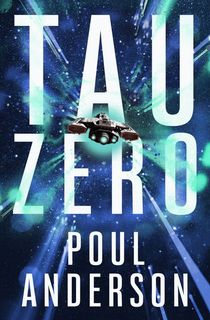
Tau Zero
Tau Zero’s premise is at once simple and terrifying: what if you were trapped in a spaceship that kept accelerating forever? This is the fate of the crew of the Leonora Christine, a ship sent out to colonize another world, propelled by an engine called a Bussard ramjet. In addition to delving into the hard science aspects of its story, Tau Zero takes time to explore the personalities and conflicts of the crew as they become ever-more distant from Earth and the normal flow of time.
1970

Ringworld
The chief selling point of this ‘70’s classic is the titular Ringworld, the colossal ring-shaped space habitat that’s captured the imaginations of decades of science-fiction fans. The tremendous scale and wonder of exploring the station are enough to carry you along with the story’s small cast of characters: Louis, a near-ageless human in search of adventure, Nessus, a bizarre alien called a puppeteer, Speaker-to-Animals, a cat-like alien, and Teela Brown, a young woman.
RELATED: 8 Space Adventures to Read Until The Expanse Returns
1974
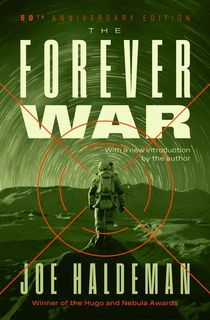
The Forever War
Despite being one of the founding books of the military sci-fi genre, The Forever War is the opposite of what you’d expect: instead of a bloody thriller, it’s a thought-provoking, heart-wrenching tale about soldiers set adrift by a war that never seems to end. Due to the time dilation caused by faster-than-light trips to fight in far-flung systems, the book’s protagonist, William Mandella, returns to Earth after multiple tours of duty to find his home planet is no longer ‘home.’
1974

The Dispossesed
Though The Dispossessed is classified as utopian sci-fi, the book has much more on its mind than simply laying out the blueprint for its fictional society, Anarres. Through its physicist protagonist Shevek, Le Guin explores the nature of time (which shapes the structure of the story itself), freedom, politics, morality, and capitalism, in part by comparing two neighboring planets: the strictly hierarchical Urras and the anarchical Anarres. Years after its release, The Dispossessed is heady, intelligent, and still timely.
RELATED: 9 Moving Quotes from Sci-Fi Master Ursula K. Le Guin
1974

The Mote in God's Eye
A classic of 1970s sci-fi, Mote tells the tale of first contact between humans and an alien race dubbed the Moties, who are residents of the titular “Mote in God’s Eye,” a star system near a red giant star. The Moties seem peaceful, civilized, and relatively friendly, but as the crew of the starship MacArthur considers allowing them to join humanity’s star-spanning empire, they realize that these aliens have a dark secret…
RELATED: 13 Wondrous Sci-Fi and Fantasy Greg Bear Books to Get Lost In
1975
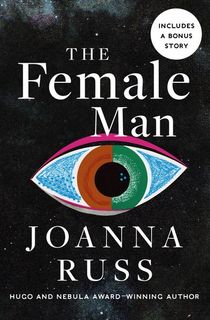
The Female Man
In one of the first modern pieces of feminist sci-fi, an average woman from 1970s America meets three other versions of herself scattered across multiple dimensions: a futuristic utopia, a bleak version of the past, and a world in an ongoing war between men and women. Hard questions are raised, including what female empowerment looks like and how women should relate to one another. Radical and unapologetic, it’s a milestone in sci-fi’s ongoing discussion of gender and womanhood.
RELATED: The Enduring Anger of Joanna Russ
1979
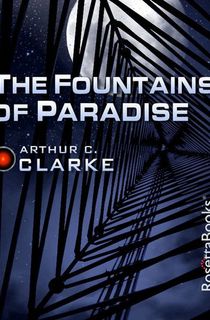
The Fountains of Paradise
Even 40 years later, Fountains remains a prophetic piece of sci-fi as monumental as its centerpiece, a 22,000-mile-long space elevator dubbed the Tower. Apart from mega-engineering, the book touches on interplanetary colonization, terraforming, ancient history, and the slow transformation of the Earth into an uninhabitable wasteland. Fountains is as much a story of technology and humanity as it is a chronicle of its protagonist, Vannevar Morgan, and its sheer scope is enough to induce vertigo.
1979

Hitchhiker's Guide to the Galaxy
Hitchhiker’s Guide became famous by going all-in on its unabashedly absurd sense of humor, but its decades-long staying power comes from its unique ability to capture just how vast (and potentially alien) the universe is. Hitchhiker’s revels in the knowledge that we are all just tiny specks in a swirling cosmos, so why take life so seriously? Why not feature an alien named Ford Prefect, the two-headed President of the Galaxy, and a man with a towel as the protagonists?
1980

The Book of the New Sun
The Book of the New Sun is not for those wishing for an easy read (entire articles have been written about how to even get into it), but for readers who are willing to dig in, it offers an experience unlike anything else in the genre. A unique blend of fantasy and sci-fi, the story follows Severian, a member of the Executioner’s Guild, on his journey in exile.
1983
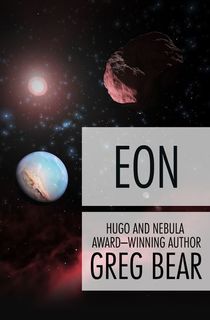
Eon
On its face, Eon’s premise is a familiar one: a massive alien structure appears near Earth, both Eastern and Western superpowers want to control it, and a brilliant scientist is caught in the middle. Eon, however, is a lot more ambitious in scope than that—as the story unfolds, it deals with human augmentation, digital resurrection, multiple timelines, and alien invasion. It’s also the beginning of a mind-bending sci-fi series, titled “The Way.”
1984

Neuromancer
Apart from being the book that kickstarted cyberpunk, Neuromancer is still arguably the greatest novel in the genre: between its vivid prose, incredibly elaborate worldbuilding, fast-moving pacing, and a plot that twists the mind into 4D pretzels, Neuromancer has rightly been called a watershed in sci-fi. The more its washed-up hacker protagonist, Case, delves into the book’s conspiracies, secret projects, black market tech, and corporate espionage, the more mind-blowing the narrative becomes.
RELATED: 5 Technologies from Neuromancer That Are Almost a Reality
1985

Contact
Written by the beloved science icon Carl Sagan, Contact is one of the more plausible, scientifically rigorous portrayals of first contact with aliens, grounded in Sagan’s lifelong love of physics, math, and astronomy. The plot kicks into gear with SETI picking up messages from Vega, a distant star system, which are eventually translated into instructions to build a mysterious machine. Contact is recommended for anyone looking to expand their mind while exploring the possibility of alien life.
RELATED: 8 Books About Alien Contact and Messages from Outer Space
1985

Ender's Game
Read by young adults and Marine Corps recruits alike, Ender’s Game is arguably the most popular sci-fi novel ever penned. Following the young tactical genius “Ender” Wiggins through his training as a starship commander in preparation for the ongoing war against the alien race known as the “buggers,” the book rises above other military sci-fi with excellent action, strong characterization, and an absolutely devastating ending.
1986
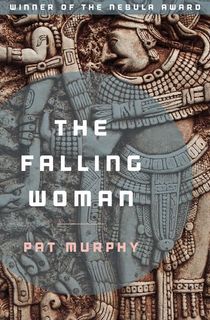
The Falling Woman
The Falling Woman is a more subtle take on sci-fi, but its honesty when it comes to human relationships makes it just as satisfying. The protagonist, Elizabeth Butler, is an archaeologist studying the ruins of an ancient Mayan city, but there’s a twist: Butler can see the spirits of the dead at dawn and dusk. Immersed in her work and the past of the Mayans, her life is interrupted by the sudden arrival of her estranged daughter, Diane.
RELATED: 8 Powerful Post-Apocalyptic Books That Will Hook You
1992

Red Mars
The Martian got a lot of attention for bringing the harsh realities of living on Mars to life, but Kim Stanley Robinson’s Red Mars is on a whole other level: charting the colonization, terraforming, and development of Mars into a true home for humans, the book delves into all the complicated questions that come with settling other planets. As one of the most acclaimed hard sci-fi writers alive, Robinson’s attention to science, geo-politics, and near-future tech makes Red Mars a captivating read.
1992

Snow Crash
A pillar of the cyberpunk genre, Snow Crash bears all of Neal Stephenson’s hallmarks: stylish prose, inventive sci-fi elements, and long digressions into weird, fascinating esoterica. Snow Crash’s narrative centers on a virus that can not only crash computer systems but rewrite the human brain, though Stephenson doesn’t really want you to take the rest of the novel’s plot too seriously (Exhibit A: its main character is Hiro Protagonist).
1993

Jurassic Park
Truly a book that needs no introduction, Jurassic Park exemplifies how hard sci-fi can capture the imagination of readers across generations. Featuring Michael Crichton’s signature blend of popular science and thriller-style writing, Jurassic Park’s main attraction is (of course) the dinosaurs—not just their behavior or violence, but the wonder of seeing giant, vanished creatures from another age…and realizing how dangerous it is to play God.
RELATED: All 5 Jurassic Park Movies, Ranked from Worst to Best
1993
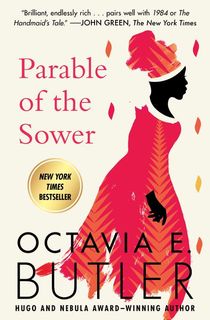
Parable of the Sower
In Parable, Butler’s dystopian America suffers from a unique combination of climate change, corporate takeover, government breakdown, and drug-fueled chaos. The book revolves around its black teenage protagonist, an empath who is looking to spread a new religion called Earthseed, which embraces change and encourages humanity’s spread to other planets. Since its release, the book’s Afrofuturist exploration of religion, environmentalism, and society has carved out a niche both in pop culture and the greater sci-fi canon.
1995

The Diamond Age
Though Diamond Age contains enough material to fill several popular science books (including hyper-advanced nanotechnology and matter compilers), the book’s genius lies in weaving all those elements together in mesmerizing ways. As always, Stephenson’s worldbuilding is incredibly immersive, and one of the highlights of the book is watching the young protagonist Nell try to survive and navigate the landscape and cultures of New Chusan (with the help of the titular Primer, of course).

2002

Altered Carbon
Blending cyberpunk with detective noir, Altered Carbon follows Takeshi Kovacs, a detective whose consciousness has recently been slotted into a new body following his own death. After working out a shady deal, he begins an investigation into the apparent suicide of a near-ageless billionaire. Action-packed and outfitted with captivating new twists on sci-fi concepts (ranging from digital consciousness to neurological implants), Altered Carbon is a twisty, futuristic mystery that relishes its intricate world and technology.
2006

World War Z
Like most good zombie fiction, World War Z is less about the walking dead and more about how they reveal the cracks in our society. Presented as a series of oral interviews with survivors in the wake of the undead apocalypse, World War Z is a deceptively subtle, insightful journey into humanity’s collective heart of darkness, as well as a vivid, incredibly well-researched portrayal of a global nightmare. The end product is a stunning mosaic of humanity at is best, worst, and most desperate.
2009

The Wind Up Girl
In one of the most celebrated dystopian sci-fi novels of all time, Paolo Bacigalupi paints a portrait of a futuristic Thailand in which calories become currency, the world is a bio-engineered nightmare run by corporations, and artificial humans have come to market. Enter Emiko, a biologically engineered person abandoned on the streets of Bangkok. A stunningly complex, immersive world gives way to an unvarnished portrayal of humanity at its most brutal.
2010

The Three-Body Problem
The first major piece of Chinese sci-fi to break into American pop culture, Three Body Problem weaves together mathematics, nanotechnology, virtual reality, and Chinese history to create a surprisingly dark alien contact narrative: what if someone found out a war-like alien civilization was on the verge of finding Earth...and decided to invite them here? Three Body’s plot is studded with big ideas and futuristic tech, but it’s set in motion by the cruelest, darkest chapters of the Chinese Revolution.
2012

Redshirts
A love letter to classic Star Trek and all the unfortunate ensigns who perished on the show’s infamous “away” missions, Redshirts is the rare sci-fi book that manages to be genuinely funny, smart, and entertaining all at once. In it, Andrew Dahl, a xenobiology specialist, is recruited to join the starship Intrepid, where he finds that his fellow low-level crewmembers (“redshirts”) live in fear of being the next unfortunate soul to perish.
RELATED: 13 Science Fiction Books That Will Tickle Your Funny Bone
2013

Ancillary Justice
Ancillary Justice burst onto the world of sci-fi after winning almost every major award possible, owing to its captivating worldbuilding, experimental narrative style, and unique protagonist: a single strand of a starship-sized artificial intelligence confined to a single human body after its central hub is destroyed. Breq, as the AI calls itself, sets out on a mission of revenge against the empire that nearly caused its destruction.

The Long Way to a Small, Angry Planet
One of the most heartfelt and refreshing sci-fi novels to come out in the past few years, Long Way focuses on exploring the pasts and inner lives of its crew of misfits as they fly their spaceship, the Wayfarer, on a mission to open up wormholes across the galaxy. The quirky cast of characters and the story’s surprisingly thoughtful insights into the universe and ourselves form an emotional core that’s already won it high praise from readers and critics.
RELATED: Author Becky Chambers Shares Her Sci-Fi Writing Secrets
2015

The Martian
On the surface, the blockbuster hit The Martian seems like a bunch of Popular Science articles spun into a novel: astronaut Mark Watney gets left behind on Mars, but manages to survive by using his knowledge of engineering and botany to solve practical problems, from oxygen-fixing to agriculture (all of which is shown in detail). Underneath, however, it’s a humorous, ingenious survival-thriller written by an author who’s really done their homework.
2015

The Fifth Season
In the most universally acclaimed science-fantasy book of the decade, N.K. Jemisin not only lays out a gloriously well-rendered world, but immediately destroys it. To understand the cataclysm that rends apart the book’s setting, a continent called the Stillness, readers first have to understand the past. The story jumps to different points in the timeline, following a trio of female orogenes, humans with the power to siphon energy and create earthquakes.
2016

Sleeping Giants
Sitting somewhere between Arrival and The Iron Giant, Sleeping Giants’ premise revolves around unraveling the origin of a giant, apparently ancient metallic hand discovered near a small Midwestern town and the realization that it’s only one of many pieces scattered across the world. Told in a series of interviews with the scientists, soldiers, and others investigating the artifacts, the book is a thriller wrapped up in conspiracies, global politics, and a tantalizing mystery.
2017
.jpg?w=640)
All Systems Red
This book is worth picking up just from its description: a security android manages to override its own programming, dubbing itself ‘Murderbot’ and deciding to kill the human scientists it was assigned to protect…before it becomes distracted by streaming endless TV shows. Told through the misanthropic inner thoughts of Murderbot (including thoughtful, if snarky, reflections on the humans and its own personality) the book is both laugh-out-loud funny and a surprisingly honest depiction of an introvert coming to terms with themselves.
This post is sponsored by Open Road Media. Thank you for supporting our partners, who make it possible for The Portalist to celebrate the sci-fi and fantasy stories you love.




.jpg?w=640)
































.jpg?w=640)